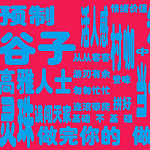Welcome to RealTime Mandarin, a free weekly newsletter that helps you improve your Mandarin in 10 minutes a week.
Subscribe today to get your fluency back, stay informed about China, and communicate with confidence in Chinese — all through immersion in real news.
On March 10, home appliance giant Midea (美的) announced measures to curb overtime, requiring all employees to leave the office by 6:20pm, as well as banning them from returning to the office after dinner.
The company says it’s building a healthier work culture by reducing hours, streamlining processes, and cutting unnecessary formalities.
Midea has also banned PowerPoint presentations, restricted after-hours meetings, and cut back on WeChat groups, and stopped the use of empty slogans (喊口号) in chat groups. It’s also prohibited gift-giving and extravagant client entertainment such as KTV outings.
Midea isn’t alone. Drone maker DJI (大疆) recently introduced a similar policy, banning employees from staying in the office past 9pm, and cutting overtime transport subsidies, to incentivise its workers against staying late.
White goods maker, Haier (海尔), has gone even further, enforcing mandatory two-day weekends and capping overtime at three hours per day—only with prior approval.
This all comes only weeks after many high schools across China began enforcing two-day weekends.
There are three drivers behind these changes according to discussions in the Chinese media.
1. “Anti-involution” movement
For decades, life in China’s tech and manufacturing companies has been shaped by “996” culture—working 9am to 9pm, six days a week. Or even worse, "007"—working 12am to 12am, seven days a week, essentially 24/7 with no breaks.
In 2019, Jack Ma infamously described this a “blessing”:
"Tech companies like Baidu, Alibaba and Tencent in China today have a 996 work culture—I believe it is a blessing that we have earned."
今天中国BAT这些公司能够996,我认为是我们这些人修来的福报。
In Chinese this is also known as “involuted” (内卷)—a cycle of excessive competition and overwork, with no increase in productivity or benefits
But in recent years, criticism of involuted 996 work culture has intensified.
Employees have begun to push back against burnout, by “lying flat” (躺平), “slacking off” (摸鱼), or “doing the bare minimum” (糊弄学) in the office.
A number of high profile incidents have highlighted its consequences—like when over-worked baristas at coffee chain, MANNER, had violent clashes with aggressive customers last summer.
This is one reason why companies like Midea are finally responding with “anti-involution” policies:
"Midea has been actively promoting 'anti-involution', by advocating for a healthy corporate culture and providing employees with a more diverse and fulfilling personal life."
美的一直在身体力行践行“反内卷”,倡导健康的企业文化,提供给员工更丰富多彩的业余生活。
2. Maintaining exports to the EU
Another driver is a new regulation announced by the EU in December last year, Regulation on prohibiting products made with forced labour on the Union market (欧盟市场禁止强迫劳动产品条例).
The new rule will ban any product manufactured under "forced labour" from entering the EU market. That includes working more than 8 hours a day or 40 hours a week, even if workers do so voluntarily, ruling out products made under “996” conditions.
Chinese brands like Midea, DJI and Haier are major exporters to Europe and so are paying attention, as one commentator notes:
"If we want to make money from other markets, we must follow their rules.
That means, Chinese companies expanding overseas should align their labour standards with international norms.”
既然要挣人家的钱,那就要遵守人家的规矩。咱们出海的企业还是要将劳工工作时间标准和国际接轨。[2]
3. Driving consumption in China
The Chinese government is pushing to reduce long working hours to encourage more spending. This comes after sharp declines in consumer spending last year in Shanghai, Beijing, and other major cities.
The idea is simple: if people work less hours, they have more time to go out and spend their money.
In December, the government stepped up its crackdown on “involuted” work practices during the Central Economic Work Conference, then reinforced it in February at a fair competition symposium chaired by the market regulator, where major firms like Alibaba were urged to curb excessive overtime.
During the Two Sessions in March, Premier Li Qiang 李强 emphasized how overwork stifles consumption. Soon after, the State Council issued a 30-point plan to drive consumer spending, including measures to protect workers’ rest and holiday rights.
Midea and other companies now appear to be early movers in responding to this top-down pressure—signalling what could finally be a real change for China’s overworked and involuted employees.
"The fundamental reason big companies are adopting a two-day weekend is the systematic, top-down implementation of anti-'involution' policies."
从上到下推行反内卷的系统工程,才是大厂双休的根本原因。[2]
Maybe even companies like BYD 比亚迪, Pinduoduo 拼多多, and JD 京东—infamous for their brutal involuted work culture—will have to join them.
So that’s what we’re exploring this week!
🎧RTM Podcast Preview🎧
This week on the RTM Advanced podcast, we’re breaking down the language of anti-involution, covering three fascinating and widely used phrases:
996 – The notorious work culture of many Chinese companies. Where did it come from, and what does it really mean? (Listen at 8:30)
卡bug – A modern internet slang term from gaming, now used to describe taking advantage of loopholes and seizing opportunities. (Listen at 12:30)
尚方宝剑 – A classical idiom from the Tang dynasty symbolising absolute authority, now used to mean the ultimate reason or driving force. (Listen at 14:20)
We’ll break down their meanings, real-world usage, and how to sound like a native.
Unlock the full episode and gain exclusive insights—join today!
Favourite Five
1. 狼性 láng xìng
wolf culture, aggressive spirit
有人认为,这两起事件只是“996工作制”和“狼性加班文化”盛行那些年的极端个案 - Some believe that these two incidents are isolated cases and do not accurately represent the broader impact of the 996 culture that aggressively promotes excessive overtime. [4]
Related:
食草文化 shí cǎo wén huà – herbivore culture (the opposite to "wolf culture")
2. 风气 fēng qì
atmosphere, trend
这是完全和当年996工作制反方向的大厂风气 - This trend that is happening in some big companies directly counters the then 996 culture. [2]
Related:
风尚 fēng shàng – prevailing custom
3. 反内卷 fǎn nèi juǎn
anti-involution, resisting excessive competition
美的一直在身体力行践行“反内卷”,倡导健康的企业文化 - Midea has been actively promoting "anti-involution" by advocating for a healthy corporate culture. [1]
More: Read more about this internet phrase started life in Japanese Manga in Sinica’s Phrase of the Week.
4. 尚方宝剑 shàng fāng bǎo jiàn
imperial sword, ultimate authority
欧盟这个条例,并不是国内反内卷的尚方宝剑 - This EU regulation is not the ultimate driver behind the anti-involution movement in China. [2]
5. 形式主义 xíng shì zhǔ yì
formalism, bureaucratic red tape
“六条禁令”包括“严禁下班时间开会、形式主义加班 - The "six prohibitions" include banning after-hours meetings and unproductive overtime. [1]
💡 Ready to bridge the gap to real-world fluency? 💡
Every RTM+ post is packed with tools to help you get fluent.
RTM+ is designed to fit your busy life, your learning style, and your level. Whether you’re “intermediate”, “advanced but rusty”, or “fluent with gaps”, you’ll get content that’s practical, engaging, and easy to stick with.
From newsletters and podcasts to curated news articles, transcripts, full word lists, PDF printouts, and app integrations—RTM+ gives you everything you need to build momentum and finally break through your plateau towards real-world fluency. 👇















